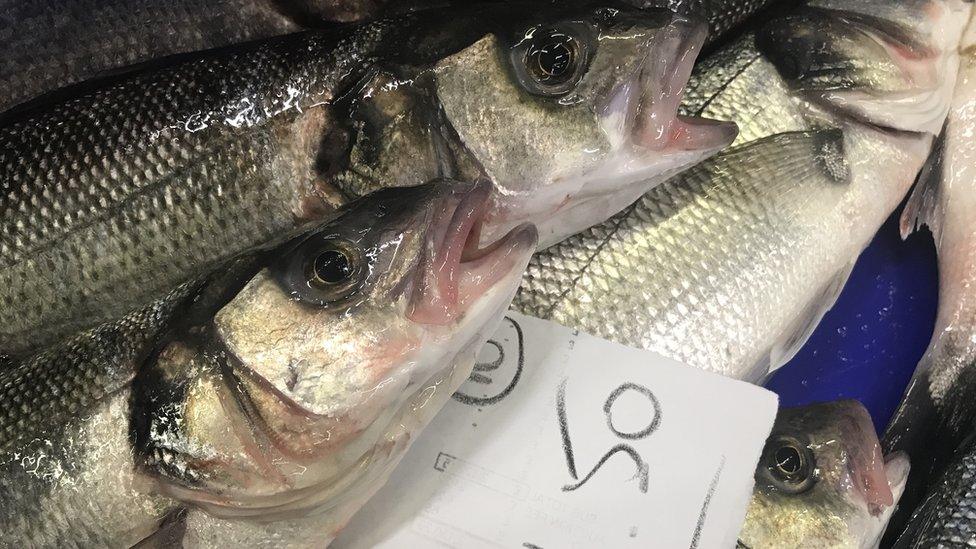Lowestoft fishing industry 'needs new apprenticeships to grow'
- Published
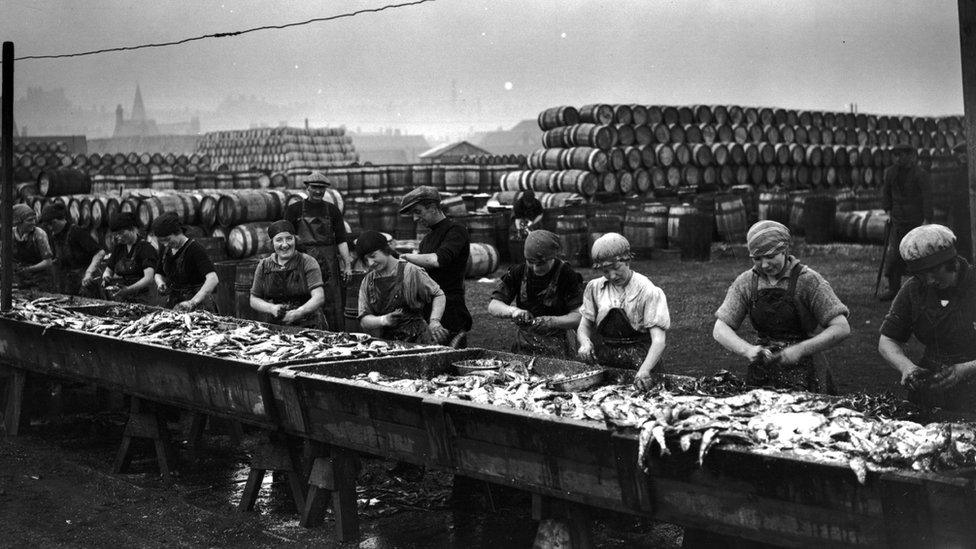
Hundreds of boats brought fish to Lowestoft during the herring season in the late 19th and early 20th Centuries, with catches gutted on the shore
An education leader in a fishing port says an apprenticeship scheme is vital to bring in "new blood" that could help revive a declined industry.
Rachel Bunn, from East Coast College in Lowestoft, said a higher profile was needed to attract youngsters.
The assistant principal said a recognised scheme could boost the sector post-Brexit.
The government's approved body said it was making "good progress" developing a new apprenticeship.
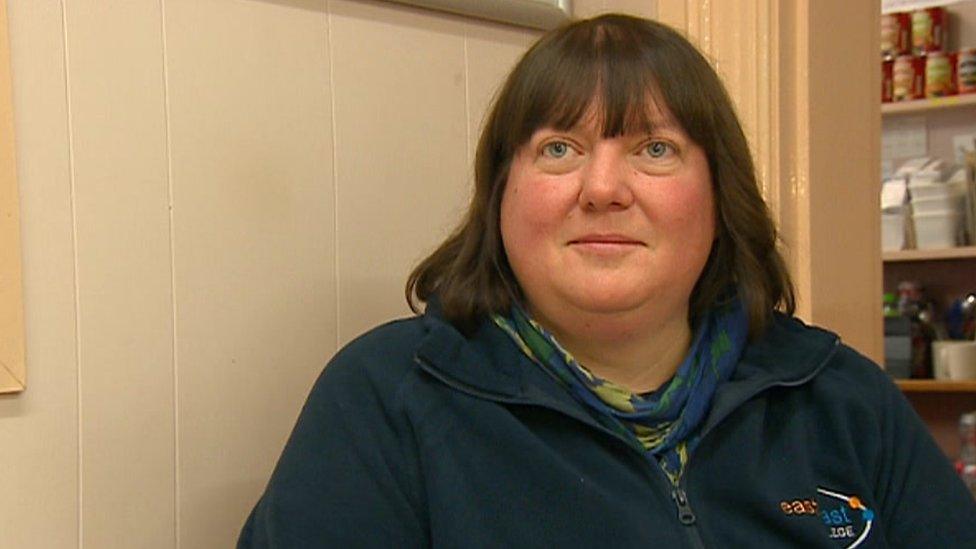
Rachel Bunn, assistant principal of East Coast College, said fishing was now a high-tech sector
Miss Bunn said the college runs marine-related courses for merchant seamen and women, but nothing specific for fishing trainees.
"If we don't give people the chance to upskill and get into the sector, there won't be any growth in the fishing industry," she said.
The lobby group Renaissance of the East Anglian Fisheries (REAF) has called for a revival of the sector after Brexit and listed an apprenticeship scheme as a key recommendation in its report to the government, external last October.
Miss Bunn said it was "early days", but the college was talking to REAF about training needs.
Jonathan Mitchell, from the government-sponsored Institute for Apprenticeships and Technical Education, external, said: "We were delighted to approve the development of a fishing apprenticeship earlier this year and are making good progress with employers on identifying what skills apprentices will need.
"It is hoped apprenticeships will help to attract more diverse and younger people into fishing."
Lowestoft's fishing tradition dates back to medieval times and peaked between 1870 and 1918.
The first training courses for fishermen in the town began in 1924 at what was then Lowestoft Institute, when navigation skills classes prepared men for Board of Trade exams.
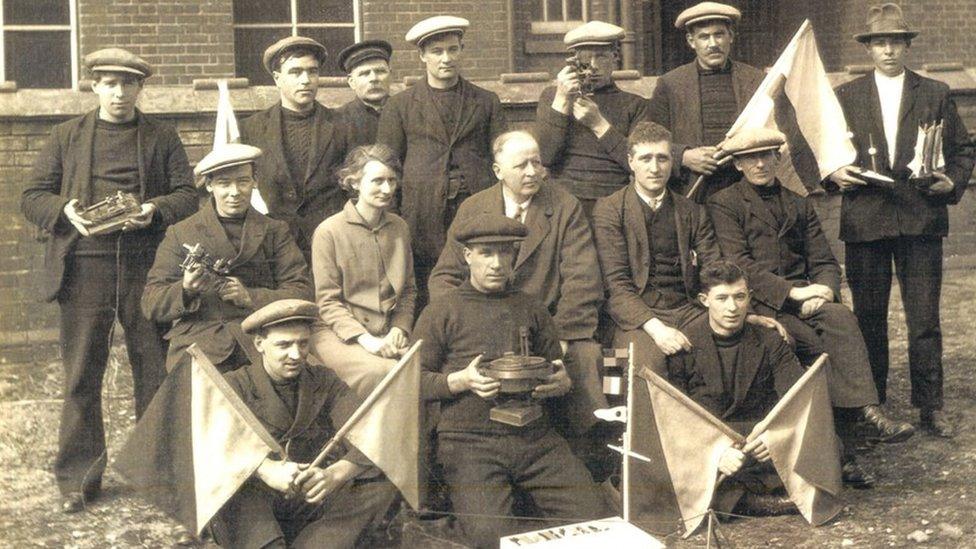
Navigation courses for fishermen started in 1924 at the Lowestoft Institute
At that time, fishing was still big business and, in the autumn herring season, hundreds of boats landed huge catches.
But herring were over-fished and led to a rapid decline of the industry in the mid-1960s.
The introduction of quotas by the EEC (the forerunner of the EU) and a fall in demand for fish further damaged the industry and now just 15 or so boats land fish of all species at the port.
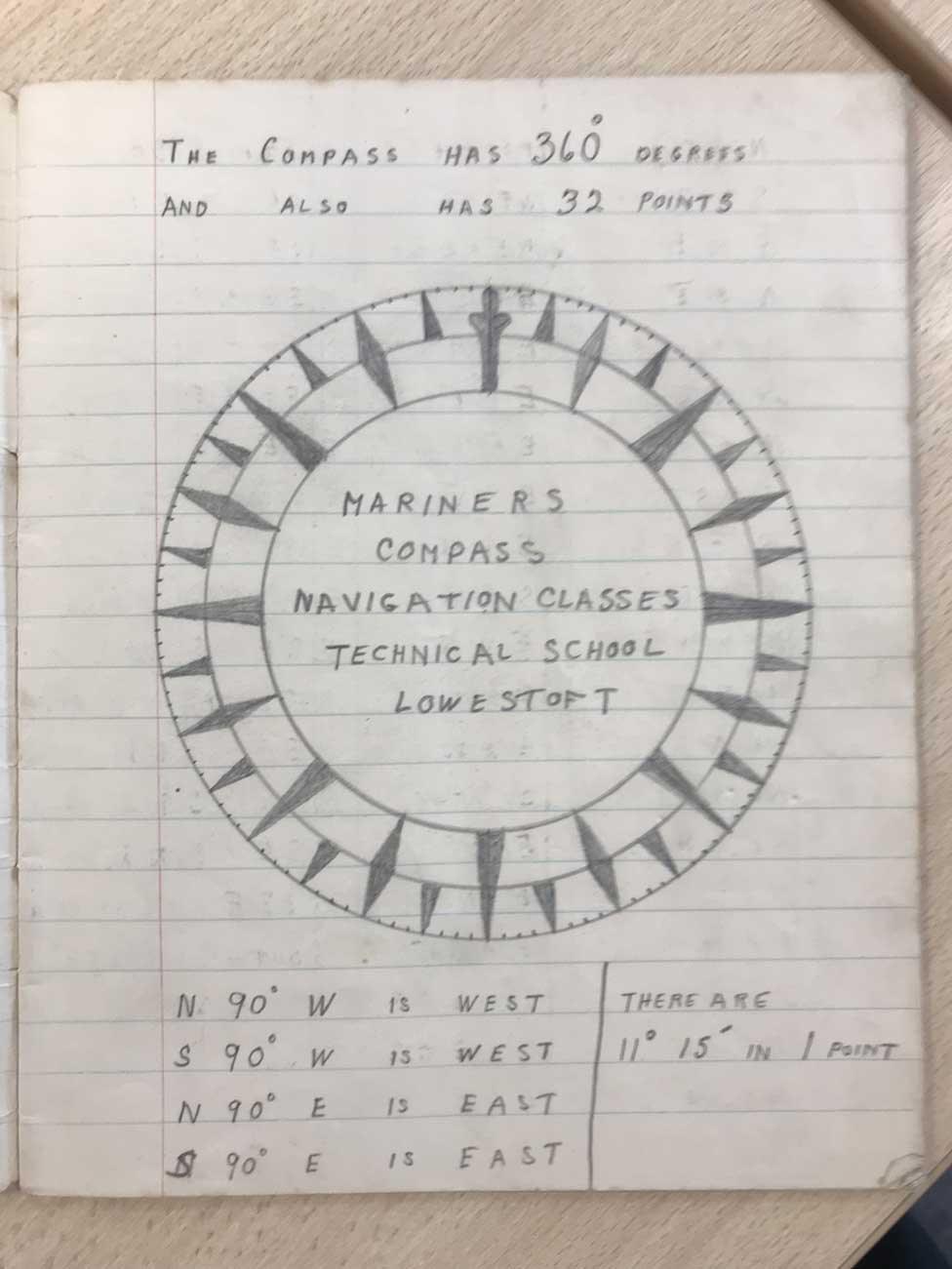
Notes used in navigation classes by college tutor Captain Harry Balls in 1924

Supporters of the fishing industry have argued that Brexit could see a revival and the creation of 300 jobs in Lowestoft.
While in the EU, the UK was signed up to the Common Fisheries Policy, which directs who can fish in European waters and the size of the catch.
After Brexit, the UK government wants to control both aspects, while the EU still wants member countries' fishing boats to have access to UK waters.
Politics East is broadcast on BBC One on Sunday, 4 October at 13.15 BST and available on the iPlayer after transmission
- Published17 October 2019
